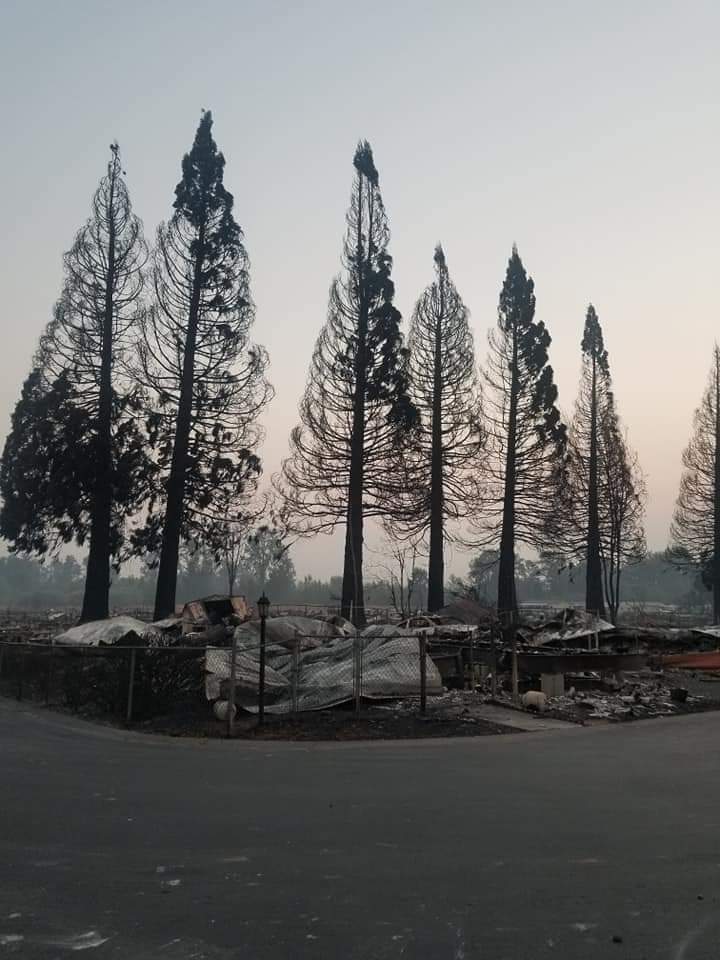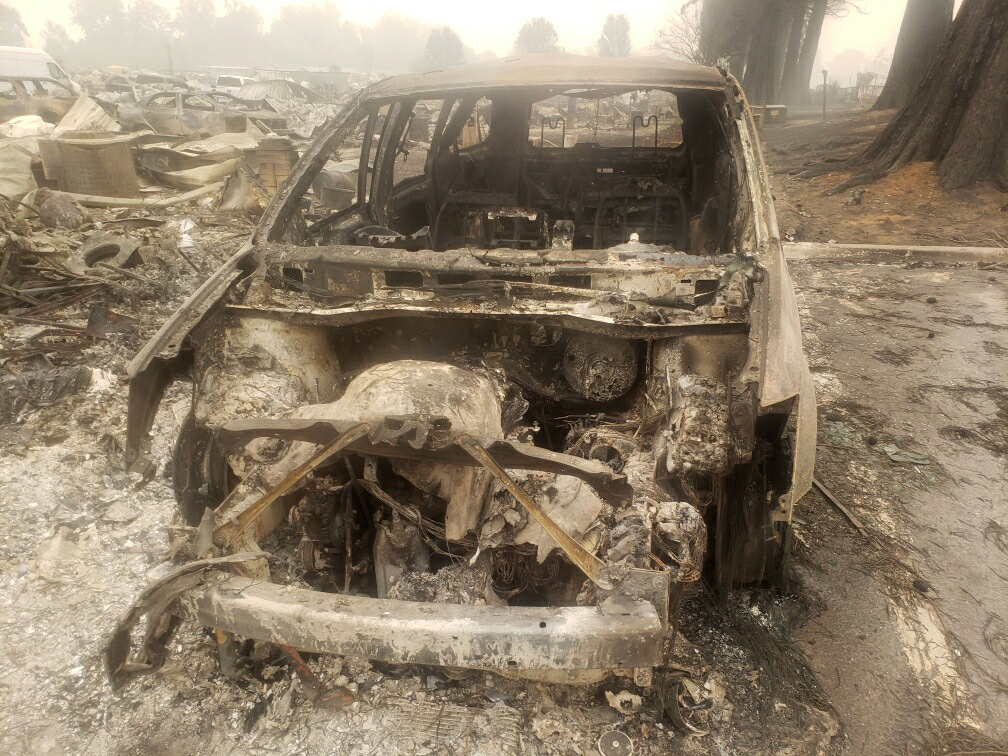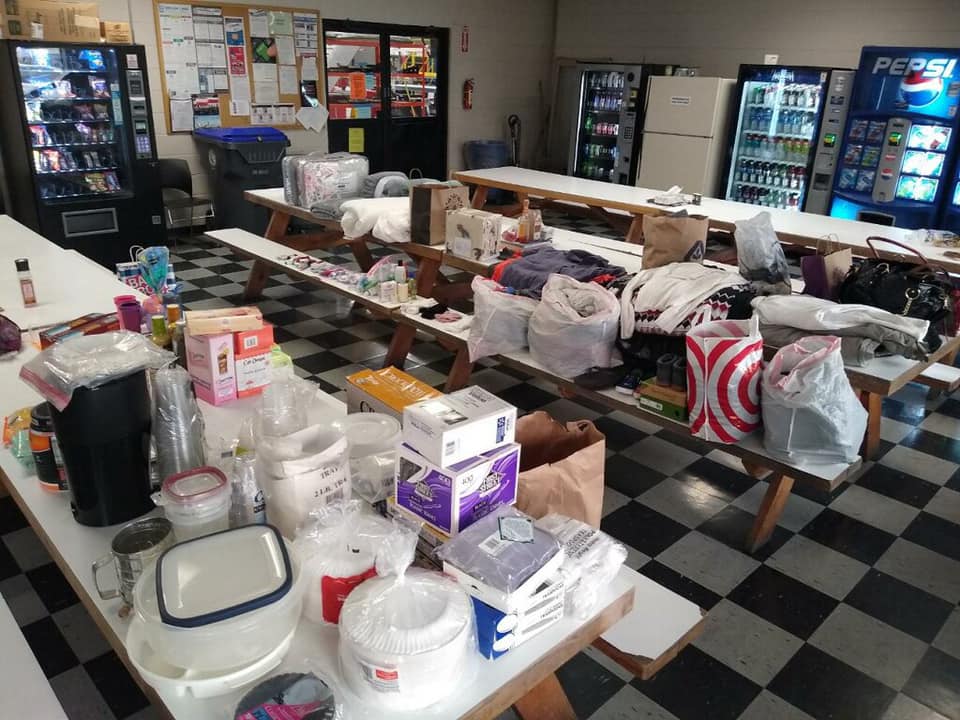2020 Fire Season in Oregon Gravely Affects Erickson Employee, Here’s Her Story
The year 2020 will live in infamy as the year of the pandemic. But for those living in the Pacific Northwest affected by wildfire in 2020, like Erickson Incorporated employee Heather Monson and her family, it was a monstrosity.
Monson has been an Erickson employee for over three years. She supports the Global Supply Chain and Procurement department. She said, “Every day is different, there is never a dull moment.” She also noted that she works from home and enjoys an early schedule in working from 6 a.m. to 2:30 p.m. She loves her job and is proud to work for a company that routinely saves lives and property.
As a wife and mother of grown children, Monson enjoys living in South Medford, Oregon. September 8, 2020 started like any normal workday for her but turned out like a disaster movie script.

“It was a horrifying, traumatic event that was completely unexpected,” she said.
She found out about the Almeda fire via a Facebook Scanner Group that day, which started in Ashland, Oregon and quickly traveled to the towns of Talent and then Phoenix, Oregon.
“There was no communication around the fire,” she said. Her husband came home for lunch at 11 a.m. that day and she said that you could smell the fire in the air, but she said, “It was windy that day and we didn’t think much about it.” However, her daughter, who lives in Central Point (nine miles away) called and told her to turn on the water around the house, the sprinklers and hoses, just in case – and to leave them on.
Monson had left to pick up her son at work early, so that he could pack an evacuation bag, and they pulled into a bowling alley parking lot to observe the on-coming fire.
By then, the fire had spread closer to her town and she said, “We could see the air tankers and hear the explosions.” She said she sat crying in her car not knowing if her house would be burned down or not. The traffic was heavy, and they weren’t allowed to return home. She had not packed a bag or brought anything with her. According to www.worldatlas.com, the spread of wildfires is rapid, “wildfires in grasslands can spread at about 14 miles per hour while dense forests can experience wildfire spread of almost 6.7 miles per hour.”
It was two weeks until she was able to go back home for 10 minutes, by a police escort. Within her community, 184 homes were burned down. “Miraculously, my home was still standing,” she said. But the homes in front of hers, next to and behind were all burned down.
She partially credits leaving the water on as a reason that her home is still standing.

Although her home is still standing, the emotional toll is enormous. That combined with massive repairs to the home such as smoke damage, electrical, plumbing, carpet cleaning, installing new HVAC system with an air purifier, new roof, and outside painting, it is overwhelming.
Monson feels lucky that her house did not burn down and noted that five months after the fires in February 2021, there were still so many people displaced and homeless. She said she had a chance to talk with the firefighters who saved her home. They were devastated by the outcome. They told her that they are trained to fight fires on a couple of structures at once – not hundreds.
As an Erickson employee, Monson said that the S-64 Air Crane® Helicopter, which has a water snorkel to scoop up water and dump it on fires, could have been a tremendous help had it been used in this case.
Allen Wanamaker, Erickson’s senior director of aerial programs said there were two S-64 Air Crane® Helicopters fighting nearby fires, the Bubba N163AC and Isabelle N178AC.
“Aerial firefighting is heroic and so great, I can’t imagine being so close to the fire, the fire was so hot it melted the fire hoses to the ground; firemen had to flee the area for their own safety. Pilots are in the sky and can see the fire below, and can protect ground crews, it only takes about 30 seconds to refill the water tank, even in shallow water, using the snorkel,” she said.
She added, “I know that we could have done the same thing if we were on that fire. I think the work we do is significant, saving homes, businesses, but most importantly, we save lives. I just didn’t know what it felt like to be on the other side as a wildfire survivor.”
In total, the fire burned 3,200 acres from Ashland to Medford, Oregon. According to media outlets, the death toll was three people. The death toll for Oregon’s entire fire season in 2020 was 11 with 1 million acres being burned.
According to CNBC, in 2020 the number of fires decreased, but the number of acres burned increased by about 2 million. Per the Statesman Journal, “From 2015 to 2019, which included some major wildfire years, Oregon lost a combined 93 homes, according to the Northwest Interagency Coordination Center.”
In 2020, 4,009 homes burned down, a significant difference of loss in one-year.
The cause of the Almeda fire and off-shoot fires are still under investigation, although Wikipedia cites, “Human-caused, suspected arson, 3,000+ structures destroyed, 3 fatalities.”

Monson added that while so many suffered during the horrible fire season, her Erickson co-workers were extremely generous and helpful while she and her family recovered. She received many donations from co-workers as did other employees that were impacted by wildfires during that time period.
According to Joseph Terino, director of people and culture, Erickson made direct cash contributions to the recovery efforts in Southern Oregon, with $5,000 cash donations to each of the United Way Jackson County and the Wildland Firefighter Foundation. He also noted that because it was important to provide support to employees in their home state of Oregon, a vacation donation policy was set up so that people like Monson could receive donated vacation hours from other employees to help with recovery.

